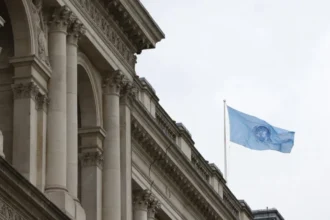In 2018, the Inter-American Court of Human Rights delivered a pivotal verdict against Brazil for its negligence in securing the Xukuru people’s land rights. This ruling marks a crucial point in Indigenous land claim disputes internationally because it upholds that the State’s failure to remove non-Indigenous individuals from an Indigenous territory implies a violation of human rights, particularly the right to communal property and cultural identity.
This case spotlighted the Xukuru’s dire situation, pointing to the widespread struggles of Indigenous peoples to maintain their ancestral lands. The case’s core involved leveraging socio-cultural anthropological expert evidence, which was useful in revealing the disputed nature of Indigenous territorial claims in Brazil.
The Xukuru’s fight for land rights intersects with transgenerational justice and identity recognition issues.
This case illuminated the complex ties between Indigenous peoples and their natural surroundings, underlining the urgency for governments to recognize and safeguard these relationships. The verdict not only represented a triumph for the Xukuru but also established a significant precedent, underscoring the necessity to merge legal and socio-cultural anthropological perspectives in tackling the intricate matters related to Indigenous land rights.
Indigenous Advocacy and Constitutional Milestones
Xukuru narrative, woven with Brazil’s constitutional changes, showcases Indigenous advocacy’s impact on legal processes, which was recently demonstrated in the matter regarding the interpretation of the timeframe (marco temporal) concerning Indigenous land titles. Led by Chief Xikão Xukuru and other Indigenous leaders, including the eminent Ailton Krenak, this activism spurred in the 80s essential legal changes during the constitutional law-making process, integrating Indigenous peoples’ rights into Brazil’s legal system. Sadly, Chief Xikão’s murder underlined the dangers of defending Indigenous lands.
Chief Xikão’s work was vital in shaping the legal framework recognizing Indigenous peoples’ rights. His efforts demanded state recognition and protection of ancestral lands, which are critical for Indigenous identity and survival. His loss highlighted the violence faced by Indigenous advocates and human rights defenders, more generally.
This advocacy period was a crucial phase in Brazil’s legal evolution, demonstrating Indigenous peoples’ role in pushing for legal recognition. The resulting constitutional changes stemmed from this push, showing progress, regarding Indigenous peoples’ rights (constitutional) protection in particular. However, achieving these milestones was challenging, revealing the intricate relationship between Indigenous movements and State entities.
The Xukuru’s fight for land rights intersects with transgenerational justice and identity recognition issues. The progress from this legal-political fight signifies relevant, albeit difficult, advancements in Indigenous advocacy. It underscores the strength of collective action and Indigenous peoples’ resilience in developing their lives autonomously.
Socio-Cultural Anthropological Expertise in Legal Arenas
The Xukuru case illuminated the pivotal role of socio-cultural anthropological insights within legal contexts, revealing how Indigenous territories encompass more than just physical spaces—they are arenas where social, spiritual, and political life flourishes. This Inter-American perspective urged governments to actively protect such territories in harmony with wider human rights duties. The case underscored the indispensable contributions of socio-cultural anthropologists, whose expertise in interpreting Indigenous connections to land proved critical in legal-administrative settings.
The Xukuru case invites a reevaluation of legal principles.
By considering socio-cultural anthropological evidence, the legal system acknowledged the intricate relationship Indigenous peoples have with their environment. Such evidence highlighted the cultural significance of Indigenous lands, advocating for a legal recognition beyond mere geographical boundaries. This approach reinforced the argument that State actions—or inactions—concerning Indigenous land rights have profound implications for the existence and survival of Indigenous peoples.
Furthermore, the case spotlighted the evolving role of socio-cultural anthropologists, who navigate the complexities of legal and political intersections. Their work demands a deep understanding of Indigenous worldviews, necessitating continuous learning, and adaptation to meet the challenges posed by domestic and international legal frameworks. This expertise is not static but evolves, reflecting the dynamic nature of both Indigenous societies and legal standards.
The involvement of socio-cultural anthropological expert evidence in the Xukuru land claims marks a significant stride towards integrating social and cultural dimensions within legal analyses. It champions a more inclusive legal approach, recognizing the rich diversity of Indigenous life that land encompasses. The Xukuru case, therefore, not only shaped legal outcomes but also enriched the dialogue between law and socio-cultural anthropology, setting a precedent for future Indigenous territorial claims.
Confronting Colonial Legacies
The Xukuru people’s legal battle represents a direct challenge to the residues of colonial oppression and the doctrine of terra nullius, which historically negated Indigenous peoples’ rights to their lands. This legal contestation goes beyond the Xukuru; it embodies a collective defiance against centuries of disenfranchisement faced by Indigenous peoples all around the world. The pursuit of the Xukuru land rights becomes a narrative of reclaiming identity and heritage that colonial powers attempted to erase.
The court emphasized the global imperative to uphold and defend the rights of Indigenous peoples.
This confrontation with colonial legacies underscores the need to rectify historical injustices inflicted upon Indigenous peoples. The Xukuru’s journey through the legal system not only seeks to secure their ancestral lands but also aims to correct the narrative that Indigenous peoples have vanished or assimilated beyond recognition. Their fight is emblematic of a larger movement among Indigenous advocates to affirm their existence, culture, and right to self-determination in the face of ongoing colonial impacts.
Moreover, the case highlights the critical role of legal frameworks in addressing or perpetuating colonial legacies. It scrutinizes how contemporary legal systems can either support Indigenous peoples’ rights to land and culture or continue to marginalize them through the application of outdated doctrines. The Xukuru’s engagement with the legal system is a clear demonstration of their resilience and a call for legal reforms that recognize and respect Indigenous peoples’ self-determination and land rights.
Addressing these colonial legacies within legal arenas demands a nuanced understanding of Indigenous land as not merely a physical space but a lifeline to social, spiritual, and community well-being. The Xukuru case invites a reevaluation of legal principles, urging a move towards justice that genuinely respects and protects Indigenous peoples’ rights and territories. This legal challenge is a crucial step in the broader struggle to dismantle the vestiges of colonialism and affirm Indigenous peoples’ rightful place and voice within national and international discourses.
The International Dimension
The Inter-American Court’s engagement in the Xukuru case marked a significant moment in the international discourse on Indigenous land rights. By examining Brazil’s obligations towards the Xukuru people, the court emphasized the global imperative to uphold and defend the rights of Indigenous peoples. This decision was not merely a domestic matter; it resonated across borders, signaling to the world the inextricable link between the protection of Indigenous territories and the broader fabric of human rights.
The Xukuru case highlighted the importance of a collective international effort in addressing the challenges faced by Indigenous peoples.
This case further illuminated the role of international legal bodies in shaping the principles that govern Indigenous land rights worldwide. By holding a nation accountable for its commitments under international law, the court reinforced the notion that Indigenous peoples’ rights are universal rights. This judicial scrutiny brought to the forefront the need for states to recognize and actively enforce the protections guaranteed to Indigenous peoples under international legal agreements.
Moreover, the court’s decision contributed to the ongoing development of international legal standards concerning Indigenous lands. It set a precedent that could guide future cases, offering a judicial framework within which the rights of Indigenous peoples could be more effectively safeguarded, particularly in cases involving the presence of non-Indigenous persons in Indigenous territories. This case thereby served as a building block for a more robust international legal architecture that acknowledges the unique relationship between Indigenous peoples and their ancestral lands, which the Inter-American System of Human Rights has been monitoring since the early 1970s through the Inter-American Commission, complementing the international mechanisms on the rights of Indigenous peoples within the United Nations system.
The Xukuru case highlighted the importance of a collective international effort in addressing the challenges faced by Indigenous peoples. It accentuated the crucial role of international courts and legal mechanisms in advancing Indigenous peoples’ rights, advocating for a world where the dignity and self-determination of Indigenous peoples are respected across all levels of governance. This landmark case reaffirmed the interconnectedness of Indigenous peoples’ rights with global efforts to uphold human dignity, justice, and equity, reinforcing the call for an integrated approach to human rights that spans cultural, legal, environmental, and territorial divides.
Xukuru Case’s Legacy: Shaping the Future of Indigenous Peoples’ Rights
The resolution of the Xukuru people’s complaint, fortified by socio-cultural anthropological insights, is a significant source of inspiration for Indigenous advocacy globally. This case vividly demonstrates the critical importance of blending legal acumen with socio-cultural anthropological understanding to advocate effectively for Indigenous peoples’ rights. The collaboration between these disciplines has proven essential in illuminating the profound connection between Indigenous peoples and their ancestral lands—a relationship that is not merely territorial but deeply embedded in their collective identities.
This journey of the Xukuru, marked by resilience and a relentless quest for justice, calls upon the international community to recognize and protect the rights of Indigenous peoples. It challenges legal systems worldwide to evolve and adapt, ensuring that Indigenous peoples’ rights to their lands are not only recognized on paper but actively upheld in practice. The case advocates for a global acknowledgment of the fact that for Indigenous peoples, land is the foundation of their existence, integral to their lives, and vital for their future generations.
The Xukuru victory underlines the need for a cohesive international approach to Indigenous peoples’ rights, pushing for legal frameworks that are inclusive, equitable, and honor the diversity and richness of Indigenous societies. This victory urges states, international bodies, and social movements to unite in creating a world where the intrinsic value of land and life, as perceived by Indigenous peoples, is universally recognized and protected.
Adaptation of an academic article for a broader audience by Politics and Rights Review, under a CC BY 4.0 license. Revised and approved by the original author of the article.









